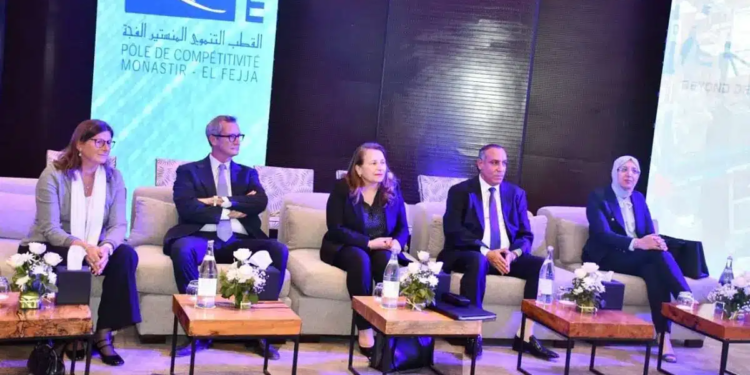The Minister of Industry, Fatma Thabet Chiboub, chaired the ceremony in Tunis marking the 19th anniversary of the Monastir–El Fejja cluster in the presence of European representatives and players in the sector. The event served as a reminder of the now structuring role of this cluster, which brings together 56 companies, nearly 11,000 jobs and a set of technical infrastructures dedicated to the textile industry.
A center that goes beyond the simple industrial vocation
Over the years, Monastir–El Fejja has expanded its missions. The site is no longer limited to hosting production units: it houses testing laboratories, a technological resource center, an innovation platform and support services intended for manufacturers. These tools support 203 companies having acquired industrial batches, including 28 currently being launched, in a context where moving upmarket is becoming essential while textile exports exceed 39 billion dinars despite international difficulties.
European roots remain decisive
Tunisia maintains a solid presence in several segments of the European market, with around 9.7 million professional pieces exported and a share above 8% in denim. This anchoring depends more and more on the ability of companies to align their processes with the technical, social and environmental standards required by the European Union. The cluster contributes to this upgrade by facilitating certification procedures and adaptation to regulations, while customs exemptions granted until 2029 extend the competitiveness of the sector in the region.
A transition to industry 4.0 still uneven but committed
According to the cluster’s managers, 50 companies have started their modernization towards more automated and connected processes. This transition, which corresponds to the principles of industry 4.0 — digital integration, real-time traceability and better energy management — is taking place in an environment which already brings together 56 active companies, 203 acquisitions of industrial land and 28 new units in preparation. The developments observed include the use of digital monitoring systems, more precise processes and more efficient management of resources, elements which have become essential in a market where clients demand greater speed, reliability and precise measurement of the environmental footprint. The pace of modernization remains variable depending on investment capacity, but it is clearly in line with the technical and environmental expectations of the European market.
Skills to reach 5 billion in 2030
The center also plays a role in training and skills renewal. It has supported 60 startups, 90% of which are still in operation, creating an environment where textile engineers, technicians, laboratories and industrial platforms come together. This dynamic contributes to disseminating practices linked to quality control, certification and digital process management. It is part of the objectives set by the sector, which is targeting 5 billion euros in exports by 2030, a milestone which requires strengthening human capacities as well as continuous technical modernization.
Also read:








